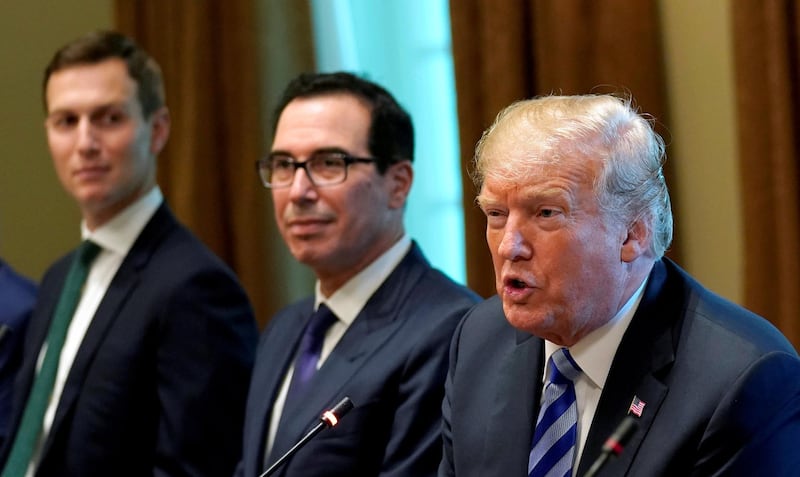Jared Kushner, US President Donald Trump’s adviser and son-in-law, announced on Wednesday that the administration’s long-awaited Middle East peace plan will be released after Ramadan.
Mr Kushner made his announcement to a group of ambassadors in Washington a week after the Israeli elections in which Prime Minister Benjamin Netanyahu scored a victory, enabling him to remain in office for a fifth term.
Ramadan ends in the first week of June.
The Trump administration has remained tight-lipped about the plan's content.
“We're not going to reveal details of the plan ahead of time,” US envoy Jason Greenblatt tweeted this week.
Palestinian chief negotiator Saeb Erekat is expected to visit Washington next week but no meetings are scheduled with Mr Kushner or his team, The National has learnt.
The Palestinian Authority cut communications with the Trump administration after it announced it would move its embassy from Tel Aviv to Jerusalem in December 2017.
The White House still hopes that Palestinian President Mahmoud Abbas will support the plan.
“We hope Abbas reads the plan, judges it on its merits and comes to the table for negotiations,” a US official said in February.
The plan is expected to have sections on political, economic and security matters, and the administration is hoping to gain Arab support for the document.
The US is also expected to co-ordinate the release of the plan with Mr Netanyahu as he forms his new government.
“The Trump peace plan is now likely to be presented in full co-ordination with Mr Netanyahu,” Daniel Shapiro, of the Institute for National Security Studies in Tel Aviv, said last week.
Mr Shapiro, an ambassador to Israel under former president Barack Obama, anticipated that the plan would fall short of meeting Palestinian aspirations, but could be accepted by the Israeli government.
“Recent comments by Secretary of State Mike Pompeo and other administration officials indicate that it will not contain the basic elements of a two-state solution,” he said.






